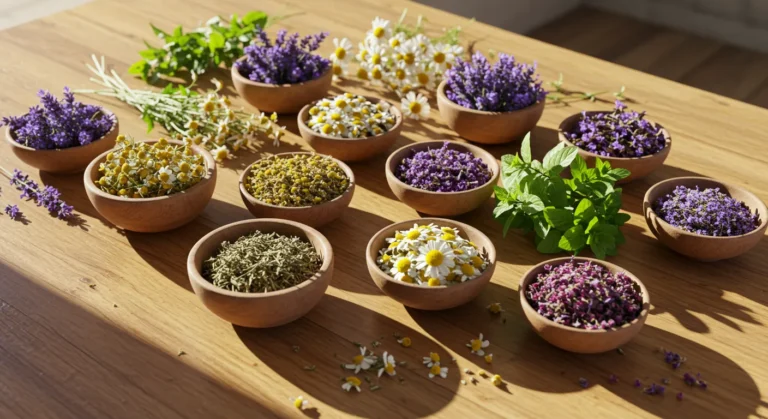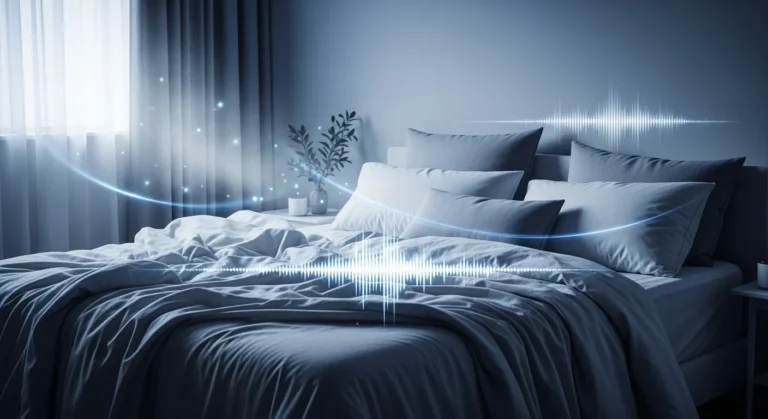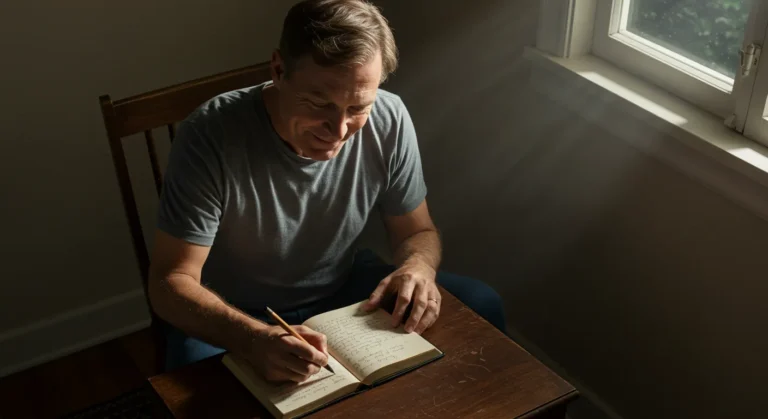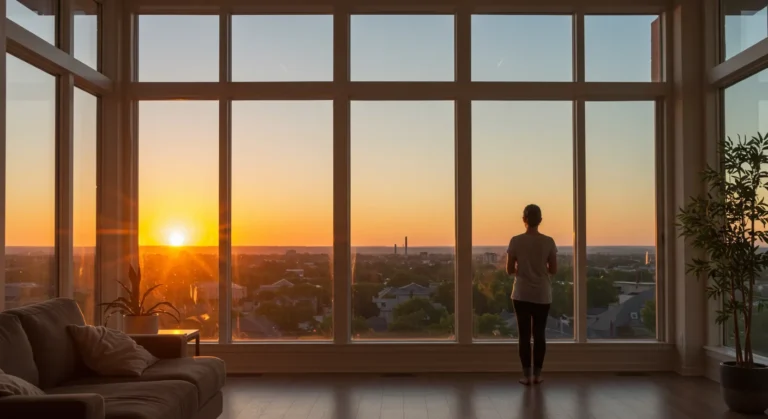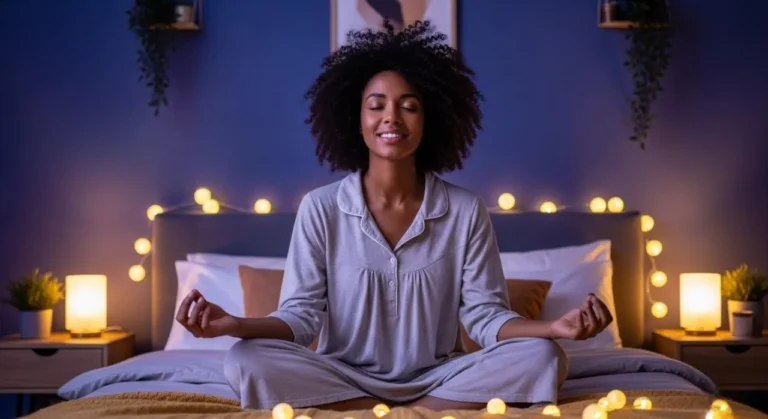Natural Sleep Remedies: Why I Ditched Sleep Pills for Good (And You Can Too)
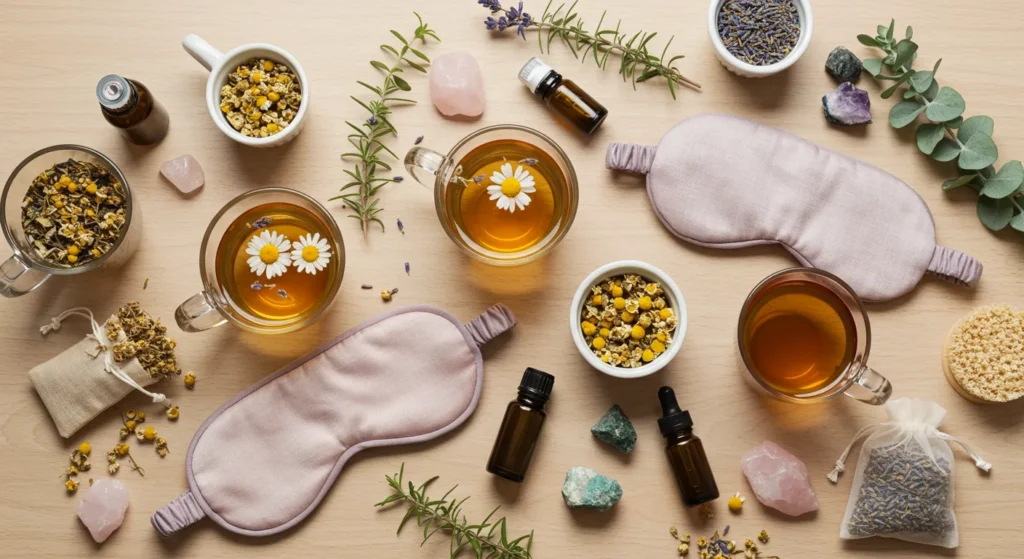
Three years ago, I was that person—the one with a medicine cabinet full of sleep aids, melatonin bottles, and whatever new supplement promised eight hours of blissful rest. My nightstand looked like a pharmacy, and honestly? I still felt like garbage most mornings.
Then something clicked during a particularly rough patch of insomnia. Maybe, just maybe, I was overthinking this whole sleep thing. What if the solution wasn’t another pill but getting back to basics?
Turns out, natural sleep remedies aren’t just hippie nonsense—they’re backed by real science and can be surprisingly effective. More importantly, they don’t leave you feeling groggy or dependent on something external to function.
The Sleep Myths That Keep Us Awake
Before we dive into solutions, let’s bust some myths that might be sabotaging your sleep without you realizing it.
“I’ll Just Sleep In This Weekend”
Oh boy, have I been guilty of this one. Pulling all-nighters Monday through Thursday, then crashing for 12 hours on Saturday thinking I’m “catching up.”
Here’s the reality check: sleep debt doesn’t work like your credit card. You can’t just pay it off in one big chunk and call it even. Your circadian rhythm—that internal clock everyone talks about—gets completely confused when you’re sleeping until noon on weekends but dragging yourself out of bed at 6 AM on weekdays.
“A Glass of Wine Helps Me Sleep”
This one’s tricky because alcohol does make you feel drowsy initially. I used to swear by my evening glass of red wine as a “natural sleep aid.”
But here’s what actually happens: alcohol might knock you out faster, but it wrecks the quality of your sleep. You end up waking up multiple times during the night (even if you don’t remember), and you miss out on that deep, restorative sleep your body actually needs.
“It’s Just Genetics—I’m Not a Good Sleeper”
While genetics do play a role, they’re not the whole story. I spent years believing I was just “naturally” bad at sleeping. Turns out, my habits were naturally bad at promoting sleep.
Natural Sleep Remedies That Actually Work
After years of experimentation (and plenty of failed attempts), here are the natural approaches that consistently help people sleep better:
Build a Sleep Schedule That Doesn’t Hate You
This is probably the most boring advice you’ll ever hear, but it’s also the most effective. Going to bed and waking up at roughly the same time every day—yes, even on weekends—is like giving your body a roadmap.
I know it sounds restrictive, but think of it this way: would you rather have the freedom to stay up until 3 AM randomly, or the freedom to actually feel rested and energetic during your waking hours?
Start small. If you’re currently going to bed anywhere between 10 PM and 2 AM, try narrowing that window to just one hour. Your future self will send thank-you notes.
Create a Wind-Down Ritual (That Isn’t Screen Time)
Your bedtime routine should be like a gentle announcement to your body: “Hey, we’re shifting gears here.” But doomscrolling Instagram doesn’t exactly whisper “relax” to your nervous system.
Here’s what works better:
- Reading actual books (remember those physical things with pages?)
- Gentle stretching or basic yoga poses
- Journaling to dump all those racing thoughts onto paper
- Taking a warm bath or shower to naturally lower your body temperature afterward
The key is consistency. Your body starts anticipating sleep when it recognizes these familiar cues.
Optimize Your Sleep Cave
Your bedroom should feel like a sanctuary, not a chaotic multipurpose room. Small changes can make a huge difference:
Temperature matters more than you think. Most people sleep best between 60-67°F. I know it sounds cold, but your body naturally drops its temperature as you fall asleep. Working with that process instead of against it is game-changing.
Darkness isn’t optional. Even small amounts of light can mess with melatonin production. If you can’t control outside lights, invest in a good sleep mask. Trust me, it’s worth looking slightly ridiculous for better sleep.
Silence the chaos. If you live in a noisy area (or have snoring partners), white noise machines or even a simple fan can create a consistent sound buffer.
Mind What You Eat (And When)
Late-night snacking used to be my specialty. Pizza at 11 PM? Absolutely. Ice cream during a Netflix binge? Why not?
Here’s what I learned the hard way: your digestive system doesn’t take a break just because you want to sleep. Heavy meals close to bedtime keep your body working when it should be resting.
But you don’t have to go to bed hungry. Light snacks that promote sleep include:
- Bananas (natural melatonin and magnesium)
- A small bowl of oatmeal (complex carbs that help tryptophan reach your brain)
- Greek yogurt with a drizzle of honey (protein plus natural sugars)
Relaxation Techniques That Don’t Require a Guru
You don’t need to become a meditation master to benefit from relaxation techniques. Simple approaches work just fine:
Box breathing: Inhale for 4 counts, hold for 4, exhale for 4, hold for 4. Repeat until your mind slows down. It’s like a reset button for your nervous system.
Progressive muscle relaxation: Tense and release each muscle group starting from your toes. By the time you reach your head, your body feels like it’s melting into the mattress.
Visualization: Create a detailed mental movie of somewhere peaceful. Engage all your senses—what do you see, hear, smell, feel? Your brain can’t tell the difference between a real relaxing experience and a vividly imagined one.
Natural Sleep Aids That Don’t Require a Prescription
Sometimes you need a little extra help, and that’s perfectly normal. Here are some gentle, natural options:
Herbal Teas: The Cozy Route to Better Sleep
Chamomile isn’t just trendy—it contains compounds that bind to the same brain receptors as some anxiety medications. A warm cup about 30 minutes before bed can genuinely help you feel calmer.
Valerian root is less well-known but equally effective. Fair warning: it smells terrible (like dirty gym socks) but works surprisingly well for many people. The capsule form is more palatable than the tea.
Passionflower tea is another gentle option that can help quiet an anxious mind without making you feel groggy the next day.
Supplements That Actually Have Science Behind Them
Melatonin gets all the attention, but timing is everything. Take it 30-60 minutes before you want to feel sleepy, not right as you’re getting into bed. And start with the lowest dose—more isn’t always better with melatonin.
Magnesium has been my personal game-changer. This mineral helps relax muscles and calm the nervous system. Many people are deficient without realizing it. I take magnesium glycinate about an hour before bed, and it’s like someone turns down the volume on my anxiety.
L-theanine (found in green tea) promotes relaxation without drowsiness. It’s perfect if you want to feel calm but not knocked out.
Modern Tools for Ancient Problems
While I’m generally skeptical of gadgets, some sleep-tracking devices can provide valuable insights. The Oura Ring or Fitbit can help you identify patterns—maybe you sleep terribly after eating late, or perhaps that afternoon coffee affects you more than you realized.
But here’s the thing: don’t become obsessed with the data. Sleep anxiety is real, and constantly checking your sleep scores can make things worse.
The Real Talk About Natural Sleep Remedies
Here’s what nobody tells you about natural approaches: they’re not magic bullets. Unlike popping a pill and feeling drowsy in 30 minutes, natural remedies work best as part of a comprehensive approach.
The good news? Once you find what works for you, the effects tend to be more sustainable than medication-based solutions. You’re working with your body’s natural processes instead of overriding them.
Start with one change. Don’t try to overhaul your entire sleep routine overnight (pun intended). Pick one natural remedy that resonates with you and stick with it for at least a week before adding something else.
Be patient with yourself. Some people notice improvements immediately, while others need a few weeks to see significant changes. Your body is unlearning potentially years of poor sleep habits.
Listen to your body. What works for your friend might not work for you, and that’s completely normal. Sleep is surprisingly individual.
When to Seek Professional Help
Natural remedies are powerful, but they’re not cure-alls. If you’ve tried multiple approaches consistently for several weeks without improvement, or if poor sleep is significantly affecting your daily life, it’s worth talking to a healthcare provider.
Sleep disorders like sleep apnea, restless leg syndrome, or chronic insomnia sometimes need professional treatment. There’s no shame in getting help—sleep is too important for your overall health to struggle alone.
Your Journey to Better Sleep Starts Tonight
The beauty of natural sleep remedies is that you probably already have access to most of them. You don’t need expensive supplements or fancy gadgets to start sleeping better.
Tonight, try one simple thing. Maybe it’s setting a consistent bedtime, brewing a cup of chamomile tea, or spending ten minutes doing some gentle stretches. Small changes compound over time.
Your relationship with sleep doesn’t have to be a nightly battle. With patience, consistency, and the right natural approaches, you can reclaim those peaceful, restorative nights you’ve been missing.
If you want to truly unlock your brain’s potential, discover the power of rest in our Ultimate Guide to Deep Sleep.
Disclaimer: The information provided is for educational purposes only, not a substitute for professional medical advice. Always consult a healthcare professional.


